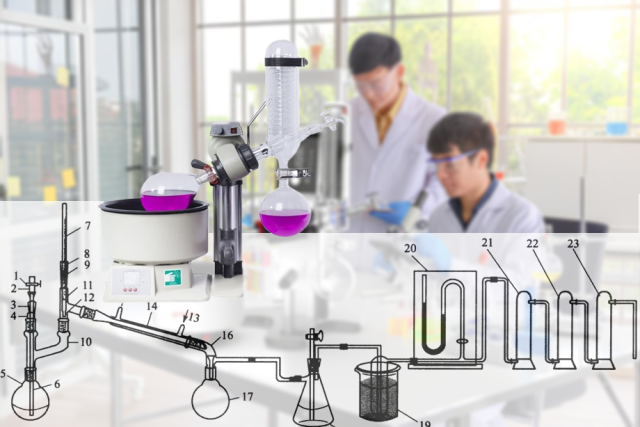Rotary evaporators, often referred to as rotavaps, have revolutionized the field of chemical processing and laboratory work by providing an efficient means to separate solvents from solutes through gentle evaporation. Key trends in the development and use of rotary evaporators reflect both advancements in technology and evolving demands in various industries. One of the most notable trends is the increasing integration of digital technology and automation into these systems. Modern rotary evaporators come equipped with sophisticated digital controls, allowing for precise regulation of temperature, rotation speed, and vacuum pressure. This digitalization enhances reproducibility and accuracy, which are crucial for high-quality results in research and industrial applications. Another significant trend is the focus on improving energy efficiency and sustainability. Traditional rotary evaporators can be quite energy-intensive, but recent advancements have led to the development of more energy-efficient models that minimize power consumption while maintaining high performance. This shift aligns with the broader movement towards greener laboratory practices and reduces the environmental impact of chemical processing.

The technology underlying rotary evaporation has also seen considerable innovation. Recent models incorporate advanced materials and coatings that improve durability and resistance to chemical corrosion. Additionally, the introduction of improved vacuum systems and enhanced condenser designs has led to better solvent recovery rates and reduced losses, which is particularly important in industries where solvents are expensive or hazardous. In terms of future prospects, rotary evaporators are likely to continue evolving in response to both technological advancements and growing environmental concerns. The integration of artificial intelligence and machine learning could further enhance the efficiency and automation of these systems. For instance, AI could be used to optimize the distillation process in real-time, adjusting parameters dynamically based on feedback to maximize efficiency and yield. This kind of innovation would not only improve performance but also reduce operational costs and waste. Moreover, the demand for rotary evaporators is expected to grow in various sectors, including pharmaceuticals, food and beverage, and petrochemicals.
In pharmaceuticals, the ability to precisely control and scale up solvent removal processes is crucial for drug development and production. In the food and beverage industry, GWSI rotary evaporators are used for extracting flavors and essential oils, where the need for gentle and efficient processing is paramount. Similarly, in petrochemicals, these systems are vital for refining and purifying various products. Additionally, as the global emphasis on sustainability and reducing carbon footprints intensifies, the development of more eco-friendly and energy-efficient rotary evaporators will likely become a focal point. Innovations such as solar-powered models or those designed to operate with lower energy inputs could emerge as important contributions to greener laboratory practices. The incorporation of digital technology, emphasis on energy efficiency, and advances in materials and design are shaping the current landscape. Looking ahead, the potential for AI-driven optimization and the increasing focus on sustainability suggest that rotary evaporators will continue to play a crucial role in a wide range of applications, driving both technological progress and environmental stewardship.
